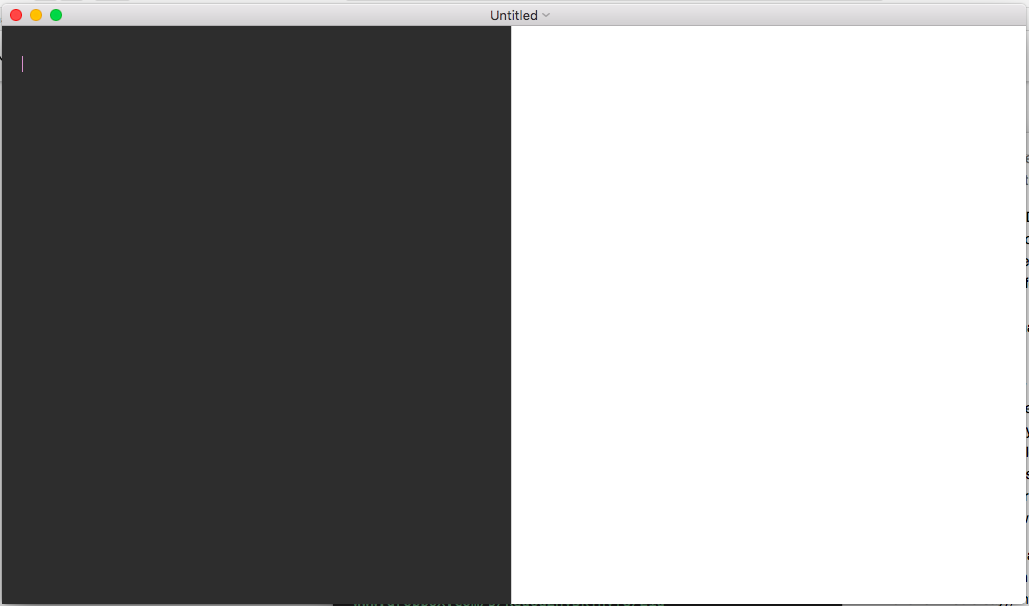McLuhan, Liu, and MarkDown
McLuhan’s Electric Light
In preparation for this class, I grappled a lot with reading McLuhan and Liu. McLuhan was dense, and Liu’s critique of his work was only a step or two more clear. One particular part of McLuhan’s text that did resonate with me, however, comes early on in the work.
While talking about electric light as the medium that enables other activities, like brain surgery or a game of baseball at night, to occur, McLuhan writes:
This fact merely underlines the point that “the medium is the message” because it is the medium that shapes and controls the scale and form of human association and action. The content or uses of such media are as diverse as they are ineffectual in shaping the form of human association (p 9).
Thinking about this in the context of our class discussion on texting, as well as currently writing in Markdown, sheds more light on the argument that McLuhen is making.
More often than not, we are accustomed to writing in various plain text editors:
- Microsoft Word
- Notepad
- Google Docs
- even Gmail!
In these platforms, we don’t actively mark by hand in our text when we want to change the stylistic elements of our words - we simply highlight them and press a button on the screen, or a few keys on our keyboard.
Going off of McLuhen’s ideas as presented in the quote above, Markdown allows for a form of close writing that we are not typically exposed to. We experience our words and the process of writing in what can arguably be considered a new way. Rather than pulling ourselves out of our work to highlight and change the style of certain parts of our text, Markdown allows for a seamless, manual creation of those styles without breaking you out of your writing flow.
This does not come without it’s caveats, however, which are accurately discussed in Liu’s critique.
Framing the New Media Encounter
My current experience with Markdown can be considered what Liu calls “the new media encounter” (p 1). Though this encounter is new, it is not, however, a blank slate. When interacting with Markdown, we bring to the table our preconceived notions and experiences - like those mentioned above - about what writing on a particular medium should look and feel like. Namely,
Like photographic vignettes in the nineteenth century, they have rounded, gradient contours that blur the raw edge of new media into the comfort zone of existing techno-social constraints, expectations, and perceptions (p 2).
On one side of the MacDown screen (the program I’ve downloaded to aid in my experimentation with Markdown), where actual writing takes place, we see a representation of what typically looks like HTML: the particular software-like font, and the color-coding of different action items like headings, lists, and hyperlinks. Directly next to it, however, is a plain-text preview of what all of that writing and coded text will ultimately look like:

In other words, the new medium of Markdown’s particular writing style is supplemented by a screen showing the text as we are used to viewing it. This can be inherently limiting to the writing process. As I add in rules to make words bold, for example, my immediate reaction is to check how my text looks in this preview window. Thus, despite being actively engaged in Markdown, I continuously come back to, and make sense of it as a new medium, through the lens of the familiar.
While this is clearly not always the case when writing in Markdown, as it is a result of my chosen application, my experience is thus shaped directly as a result. There is a lot of merit to McLuhen’s argument that can be found here; the words we read, the movies we watch, the activities we partake in - all are inherently affected in profound ways by the medium through which we experience them. For McLuhen, then, the words being bolded, or italicized, or marked as ` #header ` are less important than the act of actively marking those distinctions within the text by hand. In doing so, we have the opportunity to actively engage with our work in new ways, regardless of the exact words we are writing.
For me, writing in Markdown has been an interesting, but fun, challenge. I expect that as our Fieldbook assignment continues, I will develop a deeper engagement with the left, rather than right, side of my MacDown screen as I continue to harness my understanding and ability within this new medium.
FIELDBOOKS
